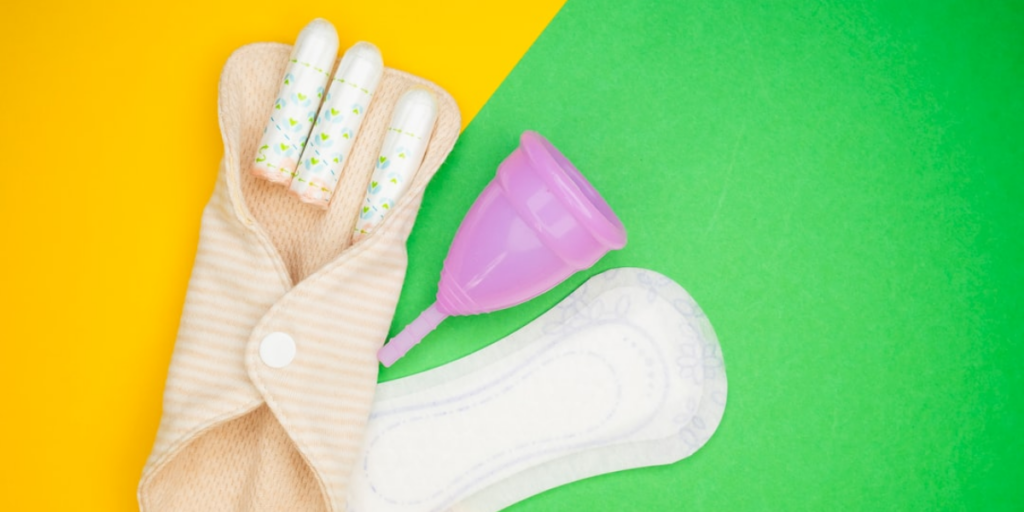What “Tampon Tim” must understand about educational equality.

I was fortunate to be a late-bloomer.
I didn’t think so at the time. I was self-conscious of my small breasts when we changed into swimsuits for P.E. and envious of my more typically-developing peers. I pretended to need pads during at least one sleepover. In a world that prized sexuality, I was a misfit, and agonized to hide it. My best friend and I spoke endlessly in private about puberty and becoming women and when we would finally join this elusive club, pouring over Judy Blume books together that further fueled our obsession. In a kiss of mercy, we were indicted on the same morning.
I called her shortly before noon, July 14th, if I remember correctly, excited to tell her my big news. Before I had a chance, she told me she had to tell me something: she’d finally been visited by “Aunt Flo”! We were elated to share this moment after years of anxiously anticipating its arrival. Neither of us felt left behind, and we had a unique secret code to refer to it and joke about: 714. “Can’t swim today; 714.” The numerical reference to a date that only we shared and understood.
The maternal response was different in each of our homes. She added “pads” to the grocery list, and menstrual supplies began to be stocked in her bathroom, and that was that.
I used my big news to stop a verbal attack from my mother in its tracks (my sole lifetime success at that endeavor, with a card I could sadly play only once). My mom tried to explain how to use the supplies, attempting a rapid pivot from aggressor to ally, but I insisted I could read the printed instructions on my own. And I thought that was that.
But soon after, I was informed that I would have to buy my own menstrual supplies going forward. Not quite legally old enough to work, but fortunately as a late-bloomer, close enough, I had nevertheless managed to secure employment. It had been my goal to save money to go to college, but my mom told me that if I had a job I could (and would have to) buy my own menstrual supplies. And so, I did. From the age at which I began menstruating, I never went a year without a job, because I could not.
And I realized this was a burden none of my male classmates would have to bear: whether to spend their time studying or at work to pay for an expense they could not avoid. To study after getting home from work at midnight or to sleep. Both answers detrimental; both sacrificing a necessary component of educational success and mental well-being. And if they earned money to save for college, they could save all of it for that important educational endeavor rather than siphoning it away to unavoidable and unequal expenses.
Around the world, millions of girls miss school due to lack of menstrual supplies. Relegated to sitting on rags as the days pass until it lets up, they slip behind their male peers in education, understanding, and opportunity. In Kenya, 95% of girls miss school due to periods. In the USA, 20% do.1 Both numbers are far too high. Because along with this loss of school comes a loss of confidence, dignity, and an added burden of shame. Period poverty versus access is one of the social determinants of mental health.
Today, most American girls begin menstruating in elementary school, not high school. At an age when the underdeveloped prefrontal cortex makes it common to forget your homework or your lunch, girls shoulder the burden of remembering to always carry with them some menstrual supplies because you never know when a sudden and embarrassing situation might crop up. Most girls aren’t so lucky as I was to begin in the summer. Most women I know have a mortifying memory of their first unprepared menstruation at school.
In the 1990’s no one thought of offering free menstrual supplies in school restrooms. It was expected that parents would cover it. But in my experience, not all parents do. Statistics demonstrate that not all parents can, with 64% of women unable to afford menstrual supplies in any given year.2 Nor do parents chose whether to have male or female children and whether to take on this (minor, but for some, burdensome) expense. But menstruating children will feel the sting and shame of the outsider and bear the psychological burdens of inequality when no one provides for their needs.
Free menstrual supplies in bathrooms is educational equality. It is gender equality. It is pro-girl, pro-women, pro-education. It levels a playing field one cannot level on one’s own.
And if some politicians take issue with other politicians signing legislation to fund free menstrual supplies in school bathrooms, one must ask: what is it they’re really standing against?
